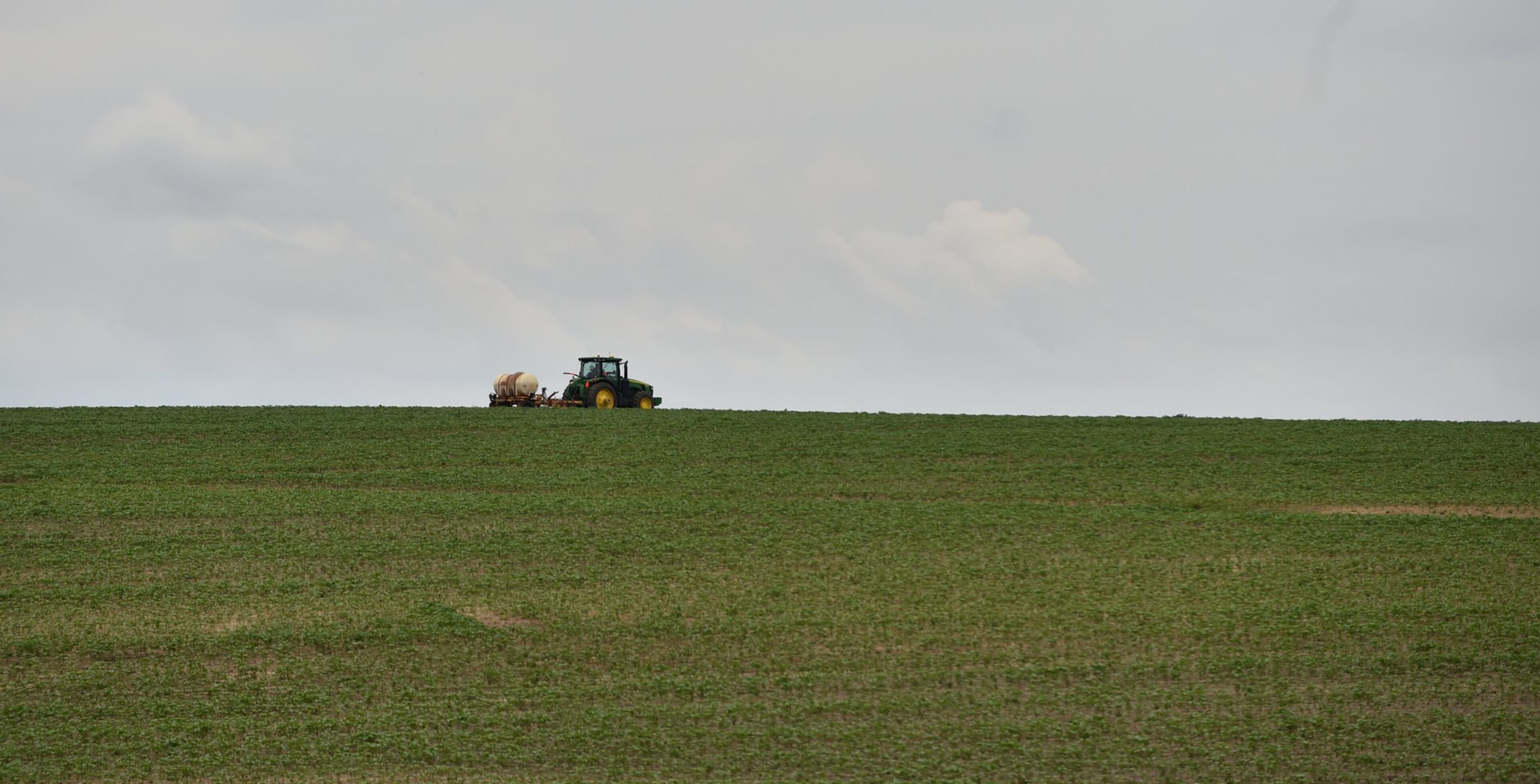Georgia farmers face uncertainty as crop tariffs loom
An escalating trade dispute between the United States and top trading partners has one of Georgia's largest industries caught in the crossfire, as tariffs recently implemented by China threaten to hit the wallets of farmers in the Peach State.
Cotton, peanut, pecan and soybean crops in the state all face falling prices and the loss of major markets as a result of retaliatory tariffs either implemented or proposed by China. These import taxes have been created in response to new tariffs President Donald Trump has slapped on trading partners in recent months.
These tariffs are an effort to narrow the country's $46 billion trade deficit, the result of the nation importing far more than it exports.
“We’ve used a different method to try and bring people to the negotiating table, and I think most growers in the state realize that,” said Georgia Agriculture Commissioner Gary Black. “Does that mean they’re not concerned about this fall’s harvest and where part of our crop might go, and what’s the price going to be? Absolutely, and I’m concerned too.”
Trump, who campaigned on decreasing the U.S. trade deficit and boosting American manufacturing, levied a 25-percent tariff on steel imports and 10 percent on aluminum in March. Those tariffs were expanded to include allies such as the European Union and Canada earlier this month. Since then, the U.S. and trading partners have gone back and forth, hammering each other with billions of dollars of retalitory tariffs.
The four crops caught up in recent rounds of tariffs combined for a value of $2 billion in Georgia in 2016, according to the UGA Cooperative Extension. New tariffs would raise the cost of importing U.S. agricultural products, leaving Georgia farmers facing uncertainty over the value of their crops. Some crops are already witnessing falling prices in the wake of gloomy expectations.
Soybean prices have fallen $1.50 a bushel since the Chinese threatened tariffs in April, said Terry Hollifield, the executive director for the Georgia office of the American Soybean Association. That drop is equivalent to about 10 percent of the crop's value.
While Georgia soybeans are rarely exported to China, Hollifield said, they are affected by the global marketplace, as farmers located outside the state who cannot sell their product to China will turn to other markets and drive up supply.

Likewise, cotton prices have fallen, said Richey Seaton, executive director of the Georgia Cotton Commission, as one of the world's largest consumers of cotton, China, will hit raw cotton with a 25 percent tariff in July. The E.U. also implemented a 25 percent tariff on cotton products and textiles, but Georgia, the third-largest cotton producer in the U.S., exports mostly raw cotton.
The Georgia Cotton Commission understands the issue Trump and members of the government are trying to combat, Seaton said, but farmers are worried about their own financial security.
“The message to our congressional delegation is we understand what’s going on here, but our mantra is ‘Do no harm,’ ” Seaton said.
Georgia pecans are incredibly popular overseas, with approximately half of Georgia's production being exported to China, said R.G. Lamar, who operates Lamar Pecan Company, one of the largest pecan farms in Georgia. China has imposed a 15 percent duty on a list of nuts, including pecans, bringing the tariff on the nut to 22 percent.
Peanuts are mostly safe for now, as the E.U.’s proposed tariff targets peanut butter, not raw peanuts. Very little of Georgia peanuts are exported as peanut butter, said Patrick Archer, president of the American Peanut Council, and the impact in Georgia is predicted to be limited.
The full impact of the tariffs on other crops will not be clear until after they are harvested in the fall, and there is little farmers can do in the meantime besides wait. The trade disputes could be smoothed over by that time, or Georgia farmers could find new markets, Lamar said, including right at home in the U.S.
In the case of pecans, Lamar said if China begins importing from somewhere else, then there will be less foreign pecans to be imported by the U.S. If that happens, American buyers may purchase even more American-grown product.
But Lamar said he does not want to speculate too much as to what might happen. At this point, it is impossible for farmers to know exactly what to expect.
“My crystal ball isn’t that clear,” Lamar said.
Tariffs for Georgia farmers
Cotton* - Low tariffs on first 890,000 tons, remainder taxed at 40 percent after a 25 percent increase
Peanuts - 37.8 percent on peanut butter after 25 percent increase
Pecans - 22 percent after 15 percent increase
Soybeans* - 28 percent after 25 percent
*Will be implemented July 6 increase

